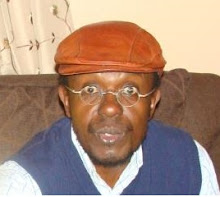On 21 December 2016, the UN General
Assembly adopted resolution 71/222 proclaiming the decade 2018 – 2028 as the
International Decade for Action, “Water for Sustainable Development”.[1]
With the world currently laser focused
on the COVID-19 pandemic, it is appropriate to say something about public
health.
Globalwaters.org has a simple
definition of “sanitation” and “hygiene”. Sanitation includes facilities,
behaviours, and services that prevent diseases caused by contact with human
waste. “Hygiene” refers to behaviours that can improve cleanliness and lead
to good health. The former encompasses facilities and behaviour whereas the
latter is purely behavioural. In other words, sanitation and hygiene is all
about public health.
The Centre
for Disease Control and Prevention offer the following explanation. Sanitation
and hygiene are critical to health, survival and development. Premised on this, it follows that investing in
basic sanitation as well as providing services such as garbage collection,
waste (domestic and industrial) management, and wastewater treatment and
disposal would significantly improve global health conditions.
Both World Health Organisation and
UNICEF
data show that more than 32% of the world’s population are at risk due to lack
of basic sanitation. Globally, investing in water and sanitation would add 1.5%
to the GDP with a 4.3 return on every dollar invested in water and sanitation services.
Considering the baseline,[2]
returns on investment in Africa are undoubtedly higher.
Over and above the economic returns,
co-benefits such as higher productivity in agricultural, commercial and industrial
enterprises due to improved workforce participation would be enormous. The other
side of the equation is real savings from avoided medical-related costs and
lost productivity due to worker absenteeism. Self-evidently, delivering
sanitation and hygiene in Africa is no brainer.
More, better managed and targeted
investment is required if African countries are to attain clean water and sanitation
goal (SDG 6) of
ensuring availability and sustainable management of water and sanitation for
all by 2030. Currently, total investment in water and sanitation is woefully
inadequate. Globally, private sector participation in the water and sanitation sector,
for example, accounted for only about 5.4% of the gross value of private investments
in infrastructure during the 1990s.
According to a World Bank Report,
at its peak in 1997, private participation in the water supply and sanitation
sector brought US$9.4 billion in investment to emerging markets, approximately
one third of the estimated amount needed to meet the Millennium Development Goals.
By 2002, private participation in this critical sector had fallen to US$1.9 billion
(Baietti and Raymond, 2005)[3].
Private sector financing needs to
be ramped up to complement the water- and sanitation-related official
development assistance that is part of a government-coordinated spending plan.
To be clear, financing is only one side of the equation. The other side which
is related to political, legal, and contractual risk is just as important.
Meaningful partnership between public and private sector is therefore as
desirable as it is unavoidable.
Going forward, mobilisation on a massive
scale will be crucial in ensuring sufficient financial and technical resources capable
of dramatically increasing the proportion of the population using (1) safely
managed drinking water services, and (2) safely managed sanitation services,
including hand-washing facility with soap and running (sic) water.
Furthermore, enhanced action is urgently
needed in terms of the proportion of wastewater that is safely treated as well
as proportion of bodies of water with good ambient water quality.
In terms of demand management,
there needs to be a significant change in water-use efficiency over-time.
[1] Human right to water and sanitation is
explicitly recognized by the United Nations General Assembly through Resolution
64/292.
[2] Seventeen African countries, including Benin;
Burundi; Comoros; Democratic Republic of Congo; Republic of the Gambia; Kenya;
Liberia; Libya; Malawi; Mali; Morocco; Mozambique; Niger; Nigeria; Uganda;
Zambia; and Zimbabwe have signed up for voluntary national review (VNR) that
will give a status report on trajectories towards realisation of sustainable
development goals. The VNR presentations which are planned to begin on Monday, 13
July 2020 as part of the high-level political forum on sustainable development
under the auspices of the Economic and Social Council will hopefully provide up-to-date
picture of where countries stand.
[3] Baietti, Aldo, and Peter Raymond.
"Financing water supply and sanitation investments: utilizing risk
mitigation instruments to bridge the financing gap." (2005).

No comments:
Post a Comment